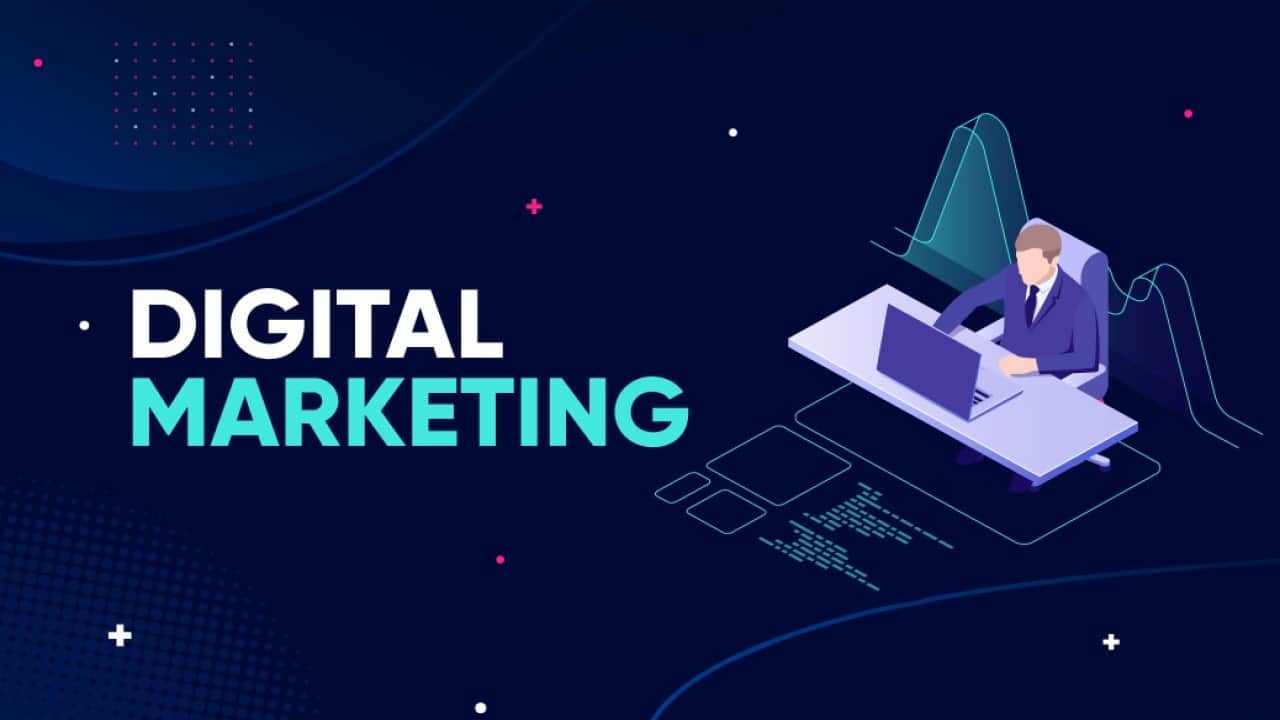
What is Digital Marketing?
Digital marketing is the practice of promoting products, services, or brands through electronic media, primarily on the internet. It encompasses a wide range of strategies and techniques aimed at reaching a target audience online, driving engagement, and converting that engagement into sales or other desired actions.
Key Components of Digital Marketing:
- Search Engine Optimization (SEO):
- The process of optimizing your website and content to rank higher in search engine results pages (SERPs). The goal is to increase organic (non-paid) traffic to your website.
- Key elements: Keyword research, on-page SEO, technical SEO, and link building.
- Content Marketing:
- Creating and distributing valuable, relevant content to attract and engage a target audience. This can include blogs, videos, infographics, podcasts, and more.
- Goal: Build brand awareness, establish authority, and nurture customer relationships.
- Social Media Marketing (SMM):
- Utilizing social media platforms like Facebook, Instagram, Twitter, LinkedIn, and others to promote your brand and connect with your audience.
- Strategies: Organic posts, paid ads, influencer partnerships, and community engagement.
- Email Marketing:
- Sending targeted emails to a list of subscribers to promote products, share news, or nurture relationships.
- Focus: Personalization, segmentation, and automation to drive higher open rates and conversions.
- Pay-Per-Click (PPC) Advertising:
- Running paid ads on search engines (like Google Ads) or social media platforms where you pay each time someone clicks on your ad.
- Objective: Quickly drive traffic and conversions, with measurable ROI.
- Affiliate Marketing:
- Partnering with other businesses or influencers who promote your products or services in exchange for a commission on sales.
- Purpose: Leverage the audience of affiliates to increase reach and sales.
- Influencer Marketing:
- Collaborating with influencers who have a significant following to promote your brand or products.
- Benefit: Authentic promotion and increased credibility through trusted voices.
- Conversion Rate Optimization (CRO):
- The practice of improving the percentage of visitors who take a desired action on your website, such as making a purchase or signing up for a newsletter.
- Methods: A/B testing, user experience (UX) enhancements, and call-to-action (CTA) optimizations.
- Analytics and Data Analysis:
- Using tools like Google Analytics to track and analyze the performance of your digital marketing efforts.
- Importance: Data-driven decisions improve strategy and ROI.
How to Earn in Digital Marketing

Earning in digital marketing can take various forms, depending on your skills, experience, and the type of services you offer. Here’s a detailed look at how you can make money in this field:
- Freelancing:
- Overview: Offer your digital marketing services to businesses or individuals on a project-by-project basis. Platforms like Upwork, Fiverr, and Freelancer are great places to start.
- Skills in Demand: SEO, content creation, social media management, email marketing, and PPC campaigns.
- Earning Potential: Beginners may start with smaller projects, earning anywhere from $5 to $50 per hour, while experienced freelancers can charge $100 or more per hour.
- Starting a Digital Marketing Agency:
- Overview: If you have a team or plan to scale, starting an agency allows you to offer comprehensive digital marketing services to businesses. This can include everything from website design to SEO, SMM, and more.
- Business Model: Charge clients a monthly retainer or project-based fee.
- Earning Potential: Agencies can earn anywhere from a few thousand to tens of thousands of dollars per month, depending on client size and services offered.
- Affiliate Marketing:
- Overview: Promote products or services through affiliate links on your website, blog, or social media channels. You earn a commission for every sale or lead generated through your link.
- Popular Networks: Amazon Associates, ShareASale, CJ Affiliate.
- Earning Potential: Commissions can range from a few percent to over 50%, depending on the product or service.
- Selling Digital Products or Online Courses:
- Overview: If you have expertise in a particular area of digital marketing, consider creating and selling digital products, such as eBooks, templates, or online courses.
- Platforms to Use: Udemy, Teachable, Gumroad.
- Earning Potential: Depending on the quality and demand, you can earn a substantial passive income from digital products.
- Monetizing Blogs or YouTube Channels:
- Overview: Create a blog or YouTube channel focused on digital marketing topics. Monetize through ads (Google AdSense), sponsored posts, affiliate marketing, or selling your products/services.
- Consistency and Quality: Regular, high-quality content is key to growing your audience and income.
- Earning Potential: Income varies widely; top bloggers and YouTubers can earn thousands of dollars per month.
- Consulting:
- Overview: Offer your expertise to businesses as a digital marketing consultant. This could involve strategy development, campaign management, or in-depth training for in-house teams.
- Target Market: Small businesses, startups, or even large corporations.
- Earning Potential: Consultants typically charge between $50 to $500 per hour, depending on their expertise and the client’s needs.
- Influencer Marketing:
- Overview: Build a strong personal brand on social media and collaborate with brands to promote their products or services. Influencers are often paid for posts, stories, or brand endorsements.
- Building a Following: Focus on creating valuable content and engaging with your audience to grow your follower base.
- Earning Potential: Micro-influencers can earn $100-$500 per post, while top influencers may earn thousands.
- Developing and Selling Tools or Software:
- Overview: If you have technical skills, consider developing a tool, app, or software that solves a problem for digital marketers. Examples include SEO tools, social media schedulers, or analytics platforms.
- Monetization Models: One-time purchase, subscription, or freemium models.
- Earning Potential: Successful tools can generate significant recurring revenue.
Conclusion
Digital marketing offers numerous avenues for earning, whether you’re looking to freelance, start your own agency, or monetize your content. The key to success in digital marketing is continuous learning, adapting to new trends, and consistently delivering value to your audience or clients. With dedication and the right strategy, digital marketing can be a highly profitable career or business venture.

Get involved!
Comments